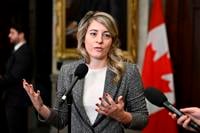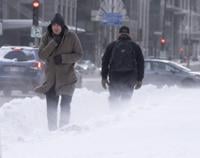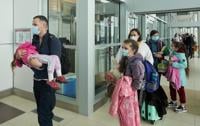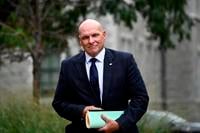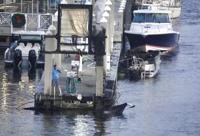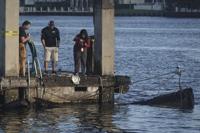OTTAWA - The federal government's decision to pause private refugee sponsorship applications from community organizations and groups of five or more people caught aid organizations off guard.ô
Lauren Lallemand, the co-executive director of the Canadian Council for Refugees, said her group met with Immigration Minister Marc Miller and federal officials during a conference that was held Nov. 26 to 28, and the idea of pausing applications was not discussed.
"The news came as a big surprise to us. It was not something the minister had informed us they were considering," Lallemand said.ô
"We really feel like it's a betrayal to the need for protection that many people overseas are experiencing, and in particular for their families in Canada who are hoping to bring them here."
An official with Miller's office said that relevant groups, including the Canadian Council for Refugees, were told about the pause before the notice for the pause was published on Friday, though they acknowledged that the heads-up didn't happen long before the announcement was made.
The government says the move is aimed at clearing a backlog of almost a quarter-million refugee claims as of the end of September.
More than 90,000 of those come from the private sponsorship program, according to immigration officials. The government says about 80 per cent of applications completed in the last six months were processed within 40 months of the initial filing.
Applications submitted before the pause was made official on Friday will still be processed.ô
Under the new immigration levels plan for 2025-2027, the government intends to admit around 58,000 refugees next year, including 23,000 from privately sponsored applications. By the end of 2027, the target is to bring in around 66,000 privately sponsored refugees.ô
The pause does not affect sponsorship agreement holders, many of which are cultural organizations and religious groups, such as the Mennonite Central Committee that has about 400 permits per year.
Brian Dyck, national migration and resettlement coordinator for the Mennonite Central Committee, said the government has full control of the number of visas issued to sponsorship agreement holders, unlike private sponsorship applications going in.
"We wrote a letter to the minister in early November saying that we think it's important to raise the number of permanent privately sponsored refugees coming in because we see this backlog," Dyck said.ô
"Our preference was that they would raise the number of landings. They didn't do that. So this was essentially the other option to try and put a limit on the number of applications that go in."
The Canadian Council for Refugees also requested a one year "bump" in the amount of visas issued to better clear the processing backlog.ô
"We feel this is a much more fair and reasonable ask than penalizing people who are trying to bring refugees to Canada simply because the government hasn't managed their inventory of cases properly," Lallemand said.ô
Lallemand added that it's "heartbreaking" there wasn't advance notice given that this pause was coming, noting it can take months to put private refugee sponsorship applications together.
"To realize overnight that your ability to submit the application has been removed, it just shows a level of callousness that we find very shocking," Lallemand said.ô
The UN refugee agency estimates there were more than 117 million people worldwide forcibly displaced from their homes. They say this figure has increased annually for the last 12 years.ô
With this growing need, Dyck said Canada needs to continue to act as a world leader when it comes to supporting refugees.ô
"Resettlement to a country like Canada is not the only solution, it's even a small part of the solution, but it is a solution and we need to be a part of this," Dyck said.
"We are leaders in this area. So I think it's important for us to continue to make spaces for refugees coming to Canada."
The government acknowledged the pause willl affect refugee aid organizations, and said they will work with partner agencies on longer-term improvements to the private refugee sponsorship program.ô
This report by üСÜꪤüýò¿Øéóæòêü was first published Dec. 2, 2024.




